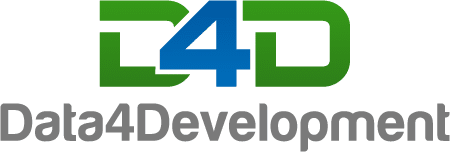A key benefit of digital transformation for NGOs is the ability to streamline operations and improve efficiency. By using technology to improve processes and manage data effectively, they can free up time and resources to focus on their core mission.
Digital Solutions in Practice – some examples
With the use of applications, NGOs can improve their core processes like project management, fundraising etc. Combining project & financial information helps to stay in control of progress, and digital tools to report results can provide an easy way to meet donor requirements as a part of the organisation’s regular reporting schedule, preventing double work.
Another way digital tools can help NGOs streamline their operations is by automating repetitive tasks. For example, they can use software to support their partner organisations to report back using automated data templates, replacing having to read 25 different reports. This can help organisations to reduce costs and improve efficiency.
NGOs are often required to track and report on a wide range of information, such as beneficiaries, funding, and program outcomes. Using digital tools, they can collect, store, and analyse data in a more efficient way. This can enable them to make better decisions and communicate their impact more effectively. For example, an NGO working to provide education in remote or underprivileged areas may use digital tools such as mobile apps or web-based platforms to collect data on student attendance, grades, and other relevant metrics. This data can be stored and analysed in real-time, allowing the organisation to make more informed decisions on how to allocate resources and improve their programs.
Overcoming Challenges of Digital Transformation
However, it’s important to remember that digital transformation is not without its challenges. Many NGOs may struggle to access the necessary resources and expertise to implement digital tools effectively. At Data4Development, we understand the unique needs of NGOs and work to provide tailored guidance that help organisations to streamline their operations and improve efficiency.
We have worked with international organisations like Hivos, helping them standardise their finance and project management application set-up across multiple locations worldwide while still addressing specific local needs such as currency and time zones. Another example is our collaboration with CNV and local unions in Latin America and Cambodia to digitise their survey processes, making them more efficient and providing better insights through data analysis which led to better insight.
Through our work, organisations have been equipped to improve their internal processes, streamline their core business by adopting the use of various technical solutions for customer relation management, project & finance management applications. For example Google Workspace has been implemented to enhance collaboration, and CRM systems to increase their reach and connect with a larger audience. Other NGOs are now able to collaborate more efficiently with other organisations through the use of tools like dashboarding, allowing for the combination of data from multiple sources to gain better insights.
Continuous Evaluation and Adaptation
To ensure that the digital solutions provided are sustainable and effective over time, change management and the adoption of new processes and technology are key parts of what we do. We aim to help NGOs understand the benefits of data, rather than viewing it as a burden and facilitate the successful implementation of digitalisation. Overall, we look at each organisation’s unique challenges and areas in which they would like to improve and provide tailored training and advice and guidance.
Conclusion
Digital transformation can play a critical role in helping NGOs to improve their way of working. With the help of experts like Data4Development, NGOs can overcome the challenges of digital transformation and unlock the full potential of technology to achieve their goals. Additionally, it’s also important to remember that digital transformation is an ongoing process, and NGOs should continuously evaluate and adapt the use of their digital tools to meet the changing needs of the organisation and its beneficiaries.
If you would like to learn more about the data transformation & training services that Data4Development offers you can visit our website: https://data4development.org/ or contact us at [email protected].
Follow us on social media:
Follow @Data4Developm
